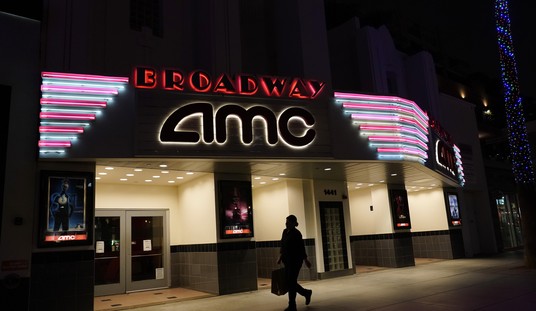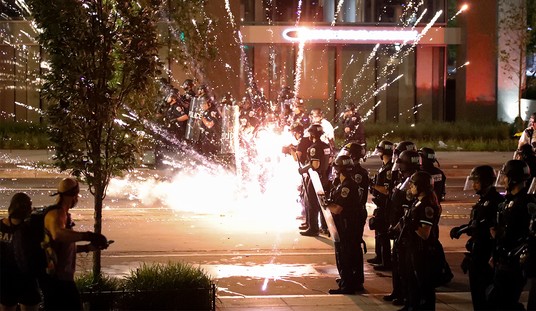He’s been telling him this since day one, but now that our old friend Muqtada al-Sadr has become a political kingmaker in Iraq, there’s a bit of extra weight to it.
Iran has demonstrated its hold over the future of Iraqi politics, telling Nouri al-Maliki, the prime minister, to “get rid of America” as he arrived to ask Tehran’s blessing for a second term in office…
Two weeks ago, the Iranian leadership negotiated backing for Mr Maliki from the militant Shia grouping, the Sadrists, who had previously been deeply opposed to his candidacy.
“The Iraqi nation is vigilant and aggressors cannot dominate this country again,” Mr Khamenei told Mr Maliki, according to a statement put out by his office. “May God get rid of America in Iraq so that its people’s problems are solved.”
We haven’t written about Iraq in ages, sad to say, so here’s the long and short of it in case you aren’t keeping up elsewhere. After months of stalemate between the two top Shiite factions in the last parliamentary election — namely, Maliki’s group and Iyad Allawi’s secular, Sunni-backed Shiite wing — Sadr and his party finally threw their support to Maliki, making him the presumptive choice to remain as prime minister. One horrifying rumor a few weeks ago held that Sadr’s price for his support was … control of one of the country’s security ministries; if that happened, with Defense or Interior in the hands of Shiite fanatics, presumably Sunnis would begin to bug out of the government in earnest. The balance of power momentarily rests with the Kurds, who can give Maliki the majority he needs to govern if they choose to support him. American officials (all the way up to Joe Biden) are trying to block that by urging them to go slow and not make any hasty decisions about whom to endorse just yet. The U.S., obviously, is hoping that the Kurds will join with Allawi, the Sunnis, and possibly the ISCI (a Shiite rival to Sadr) to form a multisectarian government; the reason the Kurds are leaning towards joining Maliki instead is that he might give them control of Kirkuk, which the Kurds regard as a holy city and which sits atop an awful lot of oil. Allawi can’t make the same offer since the Sunnis who support him have also had designs on Kirkuk since forever.
Right now the Kurds are being semi-responsible, insisting to Maliki that he needs to include the Sunnis in the administration and proposing a national unity government that includes all factions. If they end up caving on that in exchange for Kirkuk, presumably that’s the law straw for the Sunnis; the double blow of being frozen out of government by the Sadrist-backed Maliki and losing Kirkuk under Iraqi law will convince plenty of them that there’s no future in the new Iraqi political system and that it’s time to go back to guns and bombs. According to this NYT mini-bombshell from over the weekend, many of them have already gone back: Supposedly “several thousand” Sunnis have quit their government positions and allied with Al Qaeda in Iraq out of fear or the promise of higher pay or both. Meanwhile, U.S. media has been reporting since the summer that Sadr’s Mahdi Army has started to reappear on Iraqi streets, this time casting themselves as a “social movement aiming to educate the young.” If that model — of a heavily-armed Iranian-backed Shiite militia bent on winning local hearts and minds through social programs — sounds familiar, there’s a good reason. Foreign Policy explained a few months ago in an article about Sadr entitled, “The King of Iraq”:
The cleric is clearly following the Hezbollah model, creating a populist political movement backed by a battle-hardened militia. The language Sadr uses when discussing the U.S. presence in Iraq — resistance, occupation, martyrdom — could easily have been taken from a speech by Hezbollah’s leader, Hassan Nasrallah. All this has discouraged U.S. officials from holding talks with Sadr — something they’ve never done since 2003. It’s not exactly like Sadr has gone out of his way to open up a dialogue, either. In fact, Sadr and many of his top aides have made it clear that the Mahdi Army won’t disarm as long as there are American troops on Iraqi soil…
What Sadr is after is power itself — and if his past record is any indication, he won’t be shy about using it. There are any number of issues he could block or help push through parliament. Sadr has previously butted heads with Kurdish groups about the final status of Kirkuk, an oil-rich city that the Kurds claim as their capital. He is a proponent of putting oil revenues under central government control, a position at odds with the Kurds as well as some rival Shiite groups, such as ISCI. Women’s rights groups have already voiced strong concerns that the Sadrists could block their attempts to reform laws that cover property ownership, divorce, and child custody. Some even fear that Mahdi fighters will again target women’s rights activists, as they did in Basra in 2007 and 2008.
Sadr’s ambitions don’t cover Iraq’s domestic agenda alone. His high-profile trips to Jordan, Turkey, Lebanon, Saudi Arabia and elsewhere indicate that he wants to be seen as a prominent regional player. He would like to promote his Mahdi Army as a member of the so-called “axis of resistance” made up by Hezbollah and Hamas, both of which have made their names by confronting the United States and Israel.
They’re not going to disarm once America leaves, needless to say. The new pretext for keeping weapons on hand will be that they need to protect Shiite neighborhoods from the newly growing Sunni insurgency, just as the pretext for Sunnis arming up will be that they need to protect themselves from the Mahdi Army. What’s worrisome about Maliki choosing this particular moment to visit Khamenei and Iran is that he’s flaunting Iranian (and by extension Sadrist) patronage at a moment when, ideally, he’d be trying to calm the Sunnis and draw them back into government. Essentially it’s a show of strength, telling them that if the country fractures and another civil war breaks out, they’ll not only have to face him and Sadr but Iranian material support too. Which, unless I’ve misunderstood something here, means the country’s fate is momentarily in the hands of the Kurds, who aren’t real thrilled about being part of the country in the first place. What could go wrong?








Join the conversation as a VIP Member